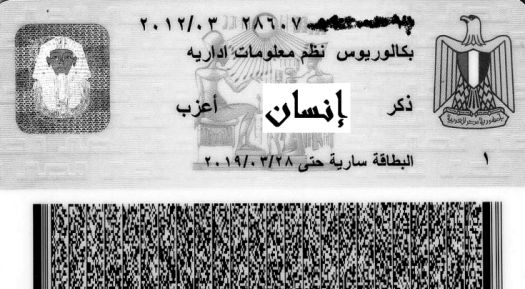
Photo Credit: National Secular Society
Egyptian legislator, Ismail Nasreddin, is planning to submit a bill to parliament that would remove religious status from national ID cards in an attempt to counter discrimination and persecution suffered by religious minorities in Egypt. A proposed bill is welcomed by activists, but it is not seen as something crucial and much more needs to be done in order to stop negative effects of religious discrimination.
While the national charter guarantees freedom of belief and worship for all citizens, article two of the Egypt's constitution declares Islam as the official religion and states that "the principles of Islamic Sharia are the main source of legislation." This is reality in Egypt, no matter the fact that Egyptian president Abdel Fattah al-Sisi stated that "every citizen has the right to worship as he or she pleases and the right not to worship at all" commenting on citizenship rights at the recent World Youth Forum in Sharm el-Sheikh, as Al-Monitor reports.
Atheism is not only a taboo in Egypt but it could also lead to prosecution and arrest under Egypt's blasphemy law that is part of Egyptian positive law since 1982. This law stipulates that any person can be imprisoned if he or she disrespects one of the three monotheistic religions, making Egypt an unsafe country for non-believers. Last year there was an attempt to outlaw atheism when a bill stipulating this was proposed. Fortunately, this bill is not yet signed into law but it only adds up to current difficult position of non-believers.
Nasreddin's proposed bill may help people who want to avoid religious discrimination but the core of the problem is hard to solve. Egyptians are going to feel safe and Egypt is going to be a free country only when there is no need for people to hide their religious affiliation or the fact that someone is a non-believer. Also the question is whether this bill is going to be signed into law, bearing in mind that there have been several attempts to remove religion from ID cards; but they have all come to a dead end. "The state has no interest in pushing this forward,” Samuel Tadros, a senior fellow at the Hudson Institute's Center for Religious Freedom told Al-Monitor in reference to the draft law. "Even if it does pass, it would be symbolic, as it is easy to tell a person's religion by his or her name, even if the religion box is deleted."
